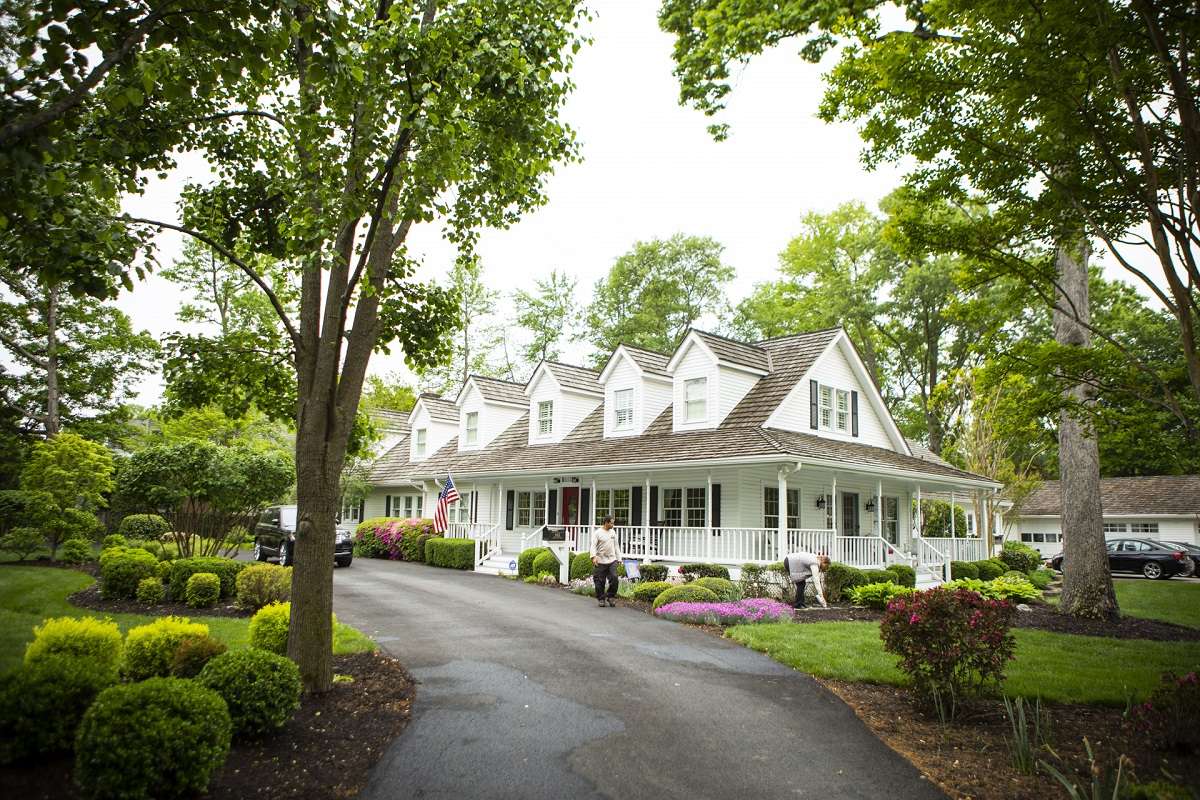

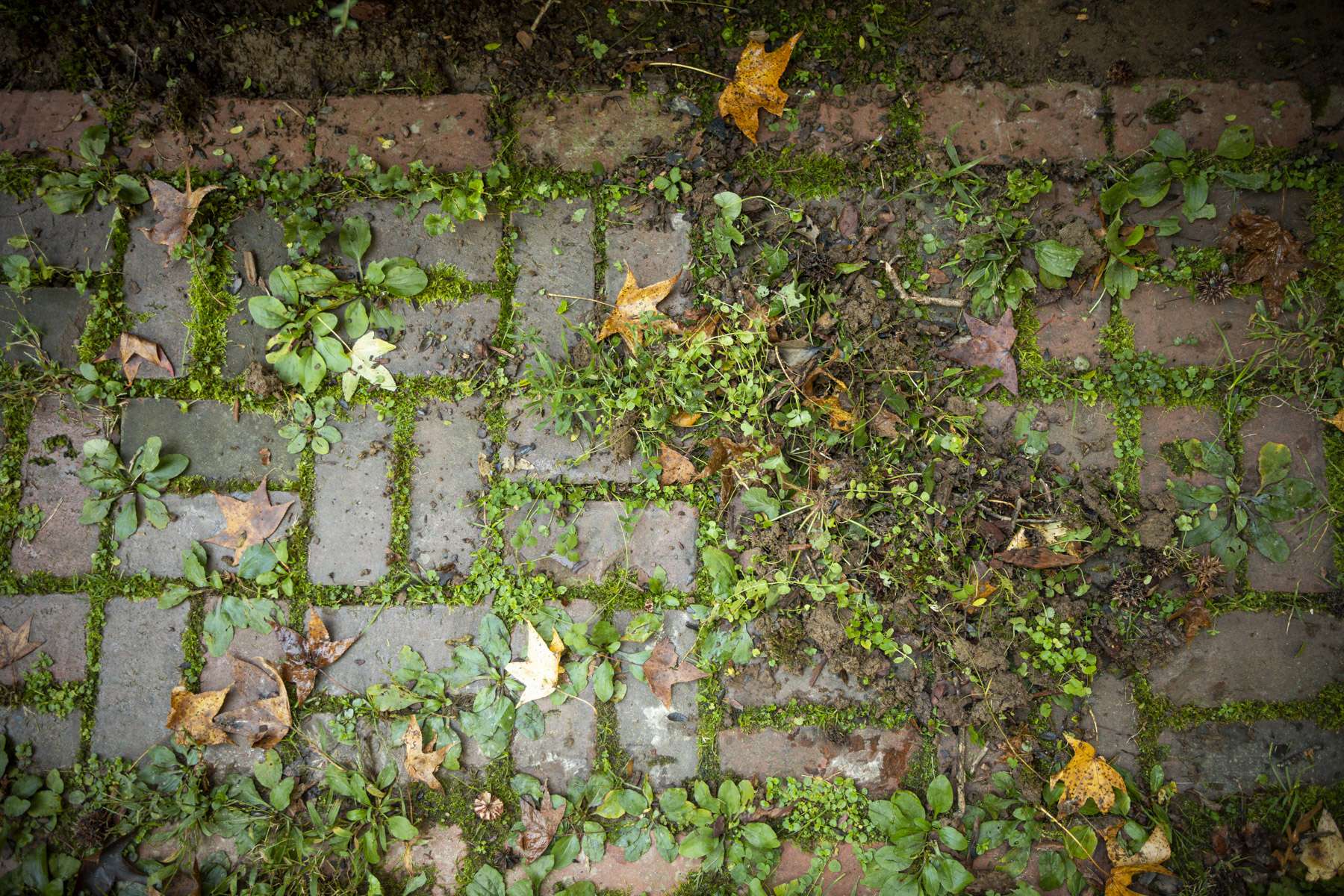
When you picture your ultimate outdoor living area, you probably don’t imagine weeds growing on your paver patio. Weeds sprouting up between pavers is not only a major frustration but it can really take away from the overall look and enjoyment of your space.
Instead of being able to sit back and relax, you’ll find yourself stressed at how your patio looks.
We know that a lot of homeowners are interested in how to prevent weeds from growing between pavers, particularly if they are already experiencing this problem. After all, who wants to constantly have to pull weeds from the patio?
The truth is, this really shouldn’t be happening in the first place. While this may not be the response that homeowners want to hear, we have always been known for being honest and providing the truth.
The way to prevent weeds from growing between pavers is to ensure that it is installed correctly from the start.
But what if you’re already experiencing weeds growing on your paver patio? You obviously can’t go back in time now, so what do you do? We’ll talk about some potential solutions as well as what might be your best course of action going forward.
First and foremost, you should know that weeds are not coming up from underneath the patio as many people often think. What’s really happening is that weed seeds have found their way into the joints of your patio and are growing there (in between the pavers).
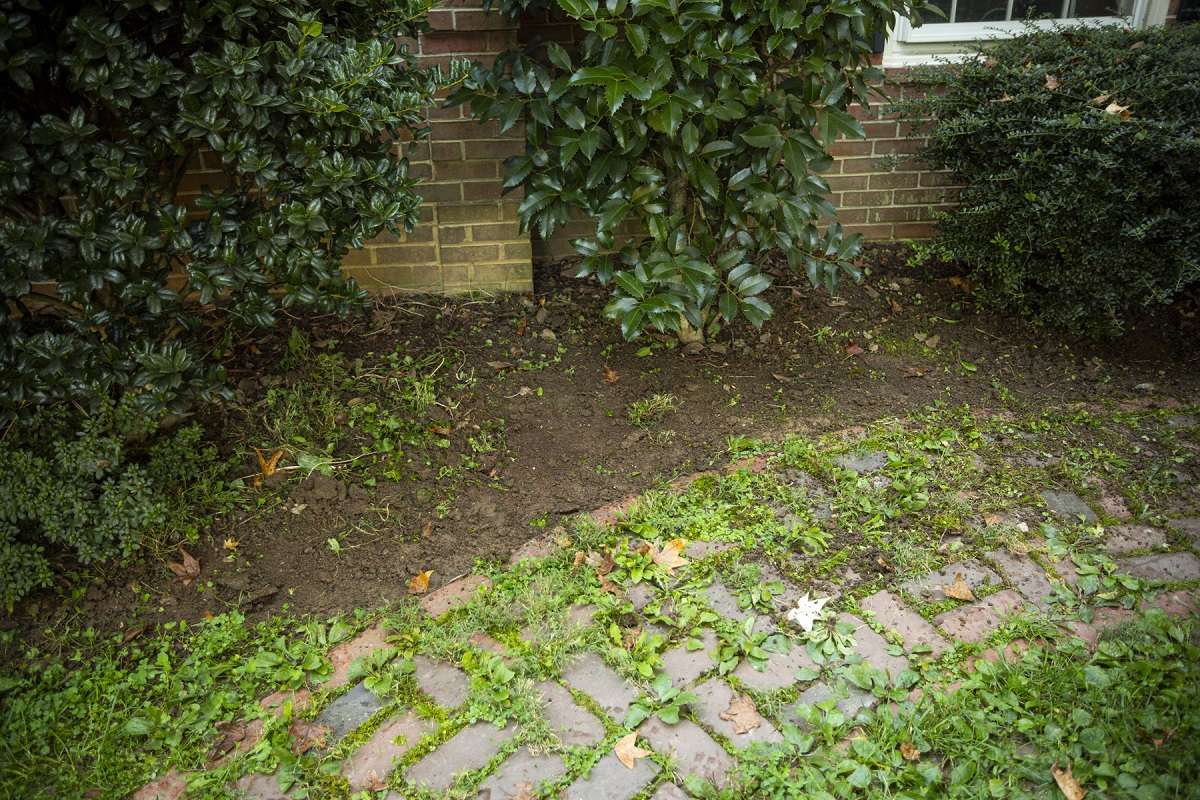
This typically happens when an installation mistake was made. Perhaps the joints have larger gaps than they should be or there has been a lot of shifting and heaving because the base wasn’t installed properly in the first place. Now, there are big gaps for weed seeds to get into and grow.
It could also be an issue with the joints themselves. A subpar material might have been used between pavers or perhaps the material was not properly installed.
When done properly, polymeric sand is swept into joints. A light mist of water is then applied to the top of the pavers to activate the sand. That becomes a flexible type of material that is meant to prevent weed growth in the first place.
Of course, there are cases when this was all performed correctly and the sand has just broken down over time. As with anything, there is a shelf life to polymeric sand, and years down the road, it may need to be replaced. If that is why you are experiencing weeds growing on your paver patio, you’re in luck—because that’s an easy fix.
If the polymeric sand has really broken down over time, then we’d pressure wash it out, clean up the patio, and install new sand. It’s a fairly simple solution.
Unfortunately, a lot of weeds growing on the patio are more commonly a symptom of a larger problem. They are usually due to mistakes made during the installation process, as we talked about above. That means you don’t only have weeds growing but you might also have pavers that are shifting or perhaps an area that is sinking.
When that’s the case, your best course of action is to have a new patio installed.
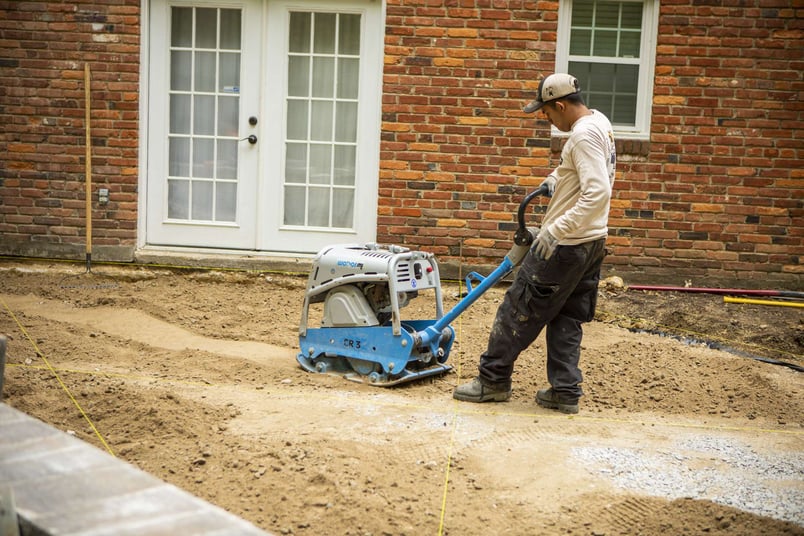
We completely understand that is not something homeowners want to hear. They obviously want it to be a simple issue of sand breaking down and needing to be replaced. But we (or any other landscape contractor) would be doing you a disservice to come in and replace your sand if the weeds are just going to keep coming back. If it’s truly a matter of an installation error, you want a long-term solution that will fix this problem for good.
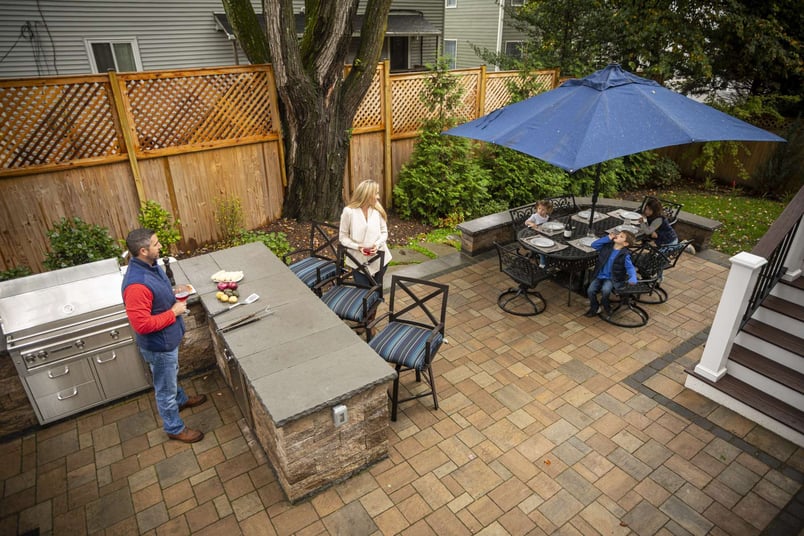
After all, a patio that is overrun with weeds or shifting pavers ultimately detracts from your property’s value and that’s a big deal.
If you have not already had a patio installed and stumbled upon this article, it hopefully has conveyed the importance of having a patio installed properly in the first place. So often, an incorrectly installed patio looks great and seems to function fine in the first couple of years. But then it’s problems a few years down the road that start to bring to light that mistakes were made.
By that point, your patio contractor might be long gone—or isn’t going to take responsibility for weeds growing on your paver patio.
When it comes to how valuable your patio will be in your outdoor living area, you simply can’t just shop on price or choose any-old landscape contractor without doing your research. It will be mistakes like the ones discussed in this article that reveal that contractors took shortcuts or made mistakes. At that point, it will be too late!
We recognize that if you googled, how to stop weeds from growing between pavers, that you might have an existing problem and that replacing your patio is not what you had hoped to hear. While you might be able to find a company that will just weed your patio and replace the sand, we think you deserve to know if this is not going to be a long-term solution if there’s a larger problem that goes ignored.
That’s why you can always count on the truth from us—even if it’s not what you necessarily wanted to hear. We believe you deserve to be an educated consumer and to make the best choice for your property. In order to do so, you need to have all the facts. We’re here to be a trusted partner on your side.
If you’d like more information on an outdoor living project at your home near Alexandria, Arlington, or Springfield, VA, request a consultation, get your customized plan, and relax while we get to work creating your dream backyard.

Since 1997, Krisjan has led the Kingstowne team with one simple philosophy, treat every customer like the “only” customer. His passionate pursuit of impeccable customer service has resulted in 24 successful years and a thriving company with over 85 employees, helping thousands of homeowners in the Alexandria, Arlington, and Springfield, VA area get what they want - a worry-free property they can be proud of.


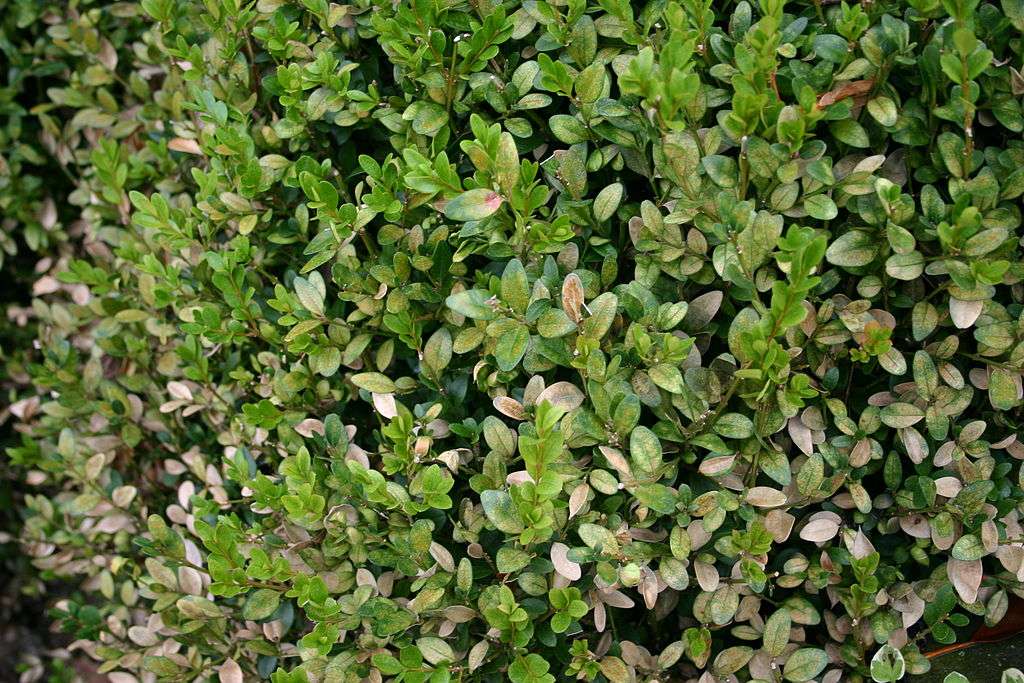

If You're Looking For a Sign, This is It.
Seriously, that lawn isn't getting any better on it's own. Mrs. Jones just called the HOA on you